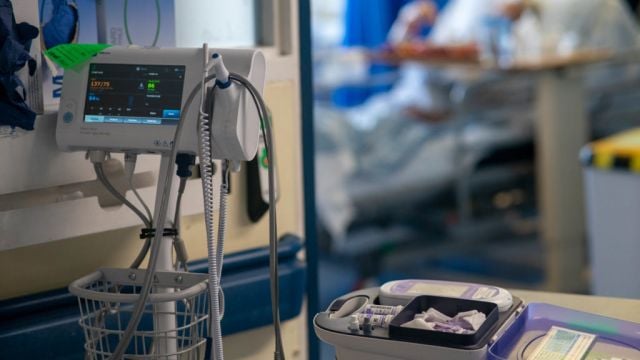Former president of the Irish College of GPs, Dr Mary Favier, has welcomed the implementation of safe access zones outside medical premises providing abortion services.
The Cork-based GP told RTÉ radio’s Morning Ireland that such services were now a normal part of healthcare and the most important thing was the impact on patients.
The implementation of safe zones will mean that protestors must keep a distance of 100 metres, she explained.
“So now people will be expected to stay back a minimum of 100 metres. If they don't stay back there, the gardaí can be called, they'll be cautioned. And if they repeat the activity within that 100 metres, they can be subject to fines and up to a six month prison sentence.”
The level of protests had not been “huge”, she said, but it had been persistent.
“So we really welcome the introduction of this implementation of the legislation today.
“There have been protests in some clinics on a weekly basis. The National Maternity Hospital has had the issue of small white coffins being placed outside its railings as patients came in and out.
“The most important thing is how it affects the patients, whether it's women and patients accessing abortion services or those accessing any other service within general practice. Because the significance of the service is that it's embedded in ordinary general practice.
"It's part of normal health care as is now accepted, and it's been a very successful introduction. And now the service goes on without difficulty, except for these protests, some of them isolated.
“In my case, a man carrying signs that included accusing people of murder. And, you know, that is a very difficult scenario if you're seeking reproductive health services, including abortion. But it's very difficult for any other person who has to look at that."
Favier said one of her patients came out and tackled the man and said it was not okay, but explained that in other situations, there have been people lining up weekly outside practices in the Midlands saying the rosary.
“And it's very difficult for staff, it's very difficult for the doctor providers," she said.
"But if you think about the National Maternity Hospital, you've got women going in and out of there for so many other reasons. You could have women coming out who've just suffered a stillbirth.
"You could have people going in, couples dealing with fatal foetal anomalies that know there’s going to be a bad outcome. And to see these types of protests is really not appropriate and they need to take place elsewhere.
“We now have about 15 per cent of GPs providing the service, which is enough, but it contributes to the chilling effect. It contributes to GPs, particularly younger GPs who may be newer in practices being concerned. What am I drawing on myself? What am I drawing on the staff? What am I going to put patients through? So yes, it's an inappropriate way to protest a service when it's in health care.”
Dr Favier said that medical professionals have been working closely with gardaí to notify them of those types of protests.
“So we really welcome it because I think it just goes to the fact that this is now an embedded service in health care. It's part of general practice.
"It's part of our national maternity services and family planning clinics, which is where it should be. And it's part of the progress that's being made.”







